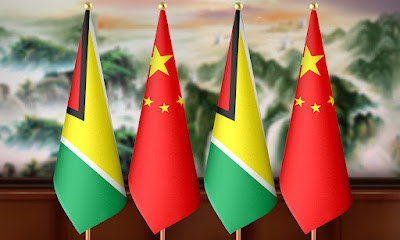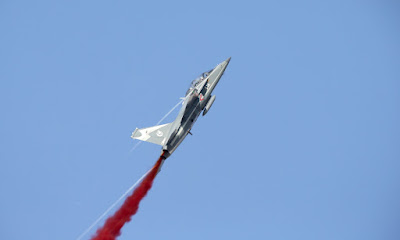Russian Air Defenses Down Su-25 Ground Attack Plane in Ukraine Operation — Top Brass
It is reported that Russian forces repelled 11 Ukrainian army attacks in the Donetsk area over the past day
© Press Service of the Ministry of Defense of the Russian Federation/TASS
MOSCOW, July 31. /TASS/. Russian air defense forces downed a Ukrainian Su-25 ground attack plane, destroyed 23 enemy drones and intercepted 12 rockets of the US-made HIMARS multiple launch rocket system over the past day in the special military operation in Ukraine, Defense Ministry Spokesman Lieutenant-General Igor Konashenkov reported on Monday.
"Air defense capabilities shot down a Ukrainian Air Force Su-25 plane near the settlement of Nikolayevka in the Donetsk People’s Republic. During the last 24-hour period, they intercepted 12 rockets of the HIMARS multiple launch rocket system," the spokesman said.
In addition, Russian air defense systems destroyed 23 Ukrainian unmanned aerial vehicles in areas near the settlements of Lisichansk and Kremennaya in the Lugansk People’s Republic, Donetsk, Soledar, Novopetrikovka and Staromlynovka in the Donetsk People’s Republic, Pologi, Chapayevka and Chubarevka in the Zaporozhye Region," the general reported.
Ukraine's military attempts attacks in three directions over past day
The Ukrainian military attempted attacks in three directions over the past day, Konashenkov reported.
"During the last 24-hour period, Ukrainian armed formations continued offensive attempts in the Donetsk, south Donetsk and Zaporozhye directions," the spokesman said.
Russian forces press ahead with advance in Kupyansk area
Russian assault teams continued their advance near the settlement of Kuzyomovka in the Lugansk People’s Republic in the Kupyansk direction over the past day, Konashenkov reported.
"In the Kupyansk direction, assault teams of the western battlegroup supported by artillery fire and army aviation strikes continued offensive operations in the area of the settlement of Kuzyomovka in the Lugansk People’s Republic and gained more advantageous positions," the spokesman said.
Russian forces also successfully repelled an enemy attack near the settlement of Novosyolovskoye in the Lugansk People’s Republic, the general reported.
"In addition, damage by combined firepower was inflicted on amassed Ukrainian manpower and equipment near the settlements of Krasnoye Pervoye, Dvurechnaya and Berestovoye in the Kharkov Region. The enemy’s losses amounted to over 45 Ukrainian personnel, two armored combat vehicles, two pickup trucks and a D-20 howitzer," the spokesman said.
Russian forces destroy 140 Ukrainian troops in Krasny Liman area over past day
Russian forces repelled two Ukrainian army attacks and destroyed roughly 140 enemy troops in the Krasny Liman area over the past day, Konashenkov reported.
"In the Krasny Liman direction, units of the battlegroup Center, army aircraft and artillery successfully repelled two enemy attacks in areas near the settlements of Kremennaya and Kuzmino in the Lugansk People’s Republic. As many as 140 Ukrainian personnel, two armored combat vehicles, three pickup trucks, D-20 and D-30 howitzers and a Gvozdika motorized artillery system were destroyed in the past 24 hours," the spokesman said.
In addition, Russian forces inflicted damage by combined firepower on units of the Ukrainian army’s 21st, 63rd and 67th mechanized and 25th air assault brigades near the settlements of Yampolovka and Torskoye in the Donetsk People’s Republic, Kuzmino and Karmazinovka in the Lugansk People’s Republic, the general reported.
Russian forces repel 11 Ukrainian army attacks in Donetsk area over past day
Russian forces repelled 11 Ukrainian army attacks in the Donetsk area over the past day, Konashenkov reported.
"In the Donetsk direction, units of the southern battlegroup successfully repelled in their active defense 11 enemy attacks in areas near the settlements of Belogorovka, Berestovoye, Spornoye, Severnoye, Maryinka, Vodyanoye and Mayorsk in the Donetsk People’s Republic," the spokesman said.
Russian forces strike Ukrainian troops, military hardware in DPR
Russian aircraft and artillery struck Ukrainian manpower and military hardware in the Donetsk People’s Republic (DPR) over the past day, Konashenkov reported.
"Operational/tactical and army aircraft and artillery inflicted damage on amassed Ukrainian manpower and equipment in areas near the settlements of Kramatorsk, Novosyolovka, Konstantinovka and Berestovoye in the Donetsk People’s Republic," the spokesman said.
Russian forces destroy over 220 Ukrainian troops in Donetsk area over past day
Russian forces destroyed over 220 Ukrainian troops in the Donetsk area over the past day, Konashenkov reported.
"In the past 24 hours, the enemy’s losses in that direction amounted to over 220 Ukrainian personnel, three armored combat vehicles, five motor vehicles, two US-made M777 artillery systems, a German-made Panzerhaubitze 2000 self-propelled howitzer, a Gvozdika motorized artillery gun, a Msta-B howitzer, a D-20 howitzer and a US-manufactured AN/TPQ-50 counter-battery radar station," the spokesman said.
Russian forces repulse Ukrainian army attack near Staromayorskoye in DPR
Russian forces repulsed a Ukrainian army attack near the settlement of Staromayorskoye in the Donetsk People’s Republic over the past day, Konashenkov reported.
"The battlegroup’s units successfully repulsed by their active operations an enemy attack near the settlement of Staromayorskoye in the Donetsk People’s Republic," the spokesman said.
In the south Donetsk and Zaporozhye directions, units of Russia’s battlegroup East in interaction with aircraft and artillery inflicted damage on amassed Ukrainian manpower and military hardware in areas near the settlements of Novodanilovka, Lesnoye, Preobrazhenka, Malaya Tokmachka, Rabotino and Orekhov in the Zaporozhye Region, the general reported.
Russian forces eliminate 275 Ukrainian troops in south Donetsk, Zaporozhye areas
Russian forces eliminated roughly 275 Ukrainian troops, three tanks and three foreign-made howitzers in the south Donetsk and Zaporozhye areas over the past day, Konashenkov reported.
"The enemy’s losses in those directions in the past 24 hours amounted to 275 Ukrainian personnel, three tanks, six infantry fighting vehicles, three armored combat vehicles, five motor vehicles, three foreign-made howitzers, in particular, US-made M109 Paladin and M777 guns and a UK-made FH70 gun, and also two Msta-B and D-20 guns," the spokesman said.
Russian forces eliminate three Ukrainian subversive groups in Zaporozhye area
Russian forces repelled a Ukrainian army attack and destroyed three enemy subversive groups in the Zaporozhye area over the past day, Konashenkov reported.
"In the area of the settlement of Uspenovka in the Zaporozhye Region, an enemy attack was repulsed and three Ukrainian subversive/reconnaissance groups were destroyed," the spokesman said.
"Also two subversive/reconnaissance groups were neutralized near the settlements of Marfopol and Priyutnoye in the Zaporozhye Region," the general reported.
Russian forces destroy 30 Ukrainian troops, US-made howitzer in Kherson area
Russian forces destroyed roughly 30 Ukrainian troops and a US-made artillery system in the Kherson area over the past day, Konashenkov reported.
"In the Kherson direction, as many as 30 Ukrainian personnel, three motor vehicles, a US-manufactured M777 artillery system, an Akatsiya motorized artillery gun and a US-made AN/TPQ-36 counter-battery radar station were destroyed in the past 24 hours as a result of damage inflicted by firepower," the spokesman said.
Russian forces wipe out Ukrainian army’s drone assembly workshop in Kharkov Region
Russian forces destroyed a Ukrainian army’s drone assembly workshop in the Kharkov Region over the past day, Konashenkov reported.
"During the last 24-hour period, operational/tactical and army aircraft, missile troops and artillery of the Russian groupings of forces struck 107 Ukrainian artillery units at firing positions, manpower and military hardware in 119 areas. In addition, a workshop for the assembly of unmanned aerial vehicles for the Ukrainian army was destroyed near the settlement of Veliky Burluk in the Kharkov Region," the spokesman said.
Also, Russian forces wiped out the headquarters and the accommodation site of the operational personnel of the Ukrainian army’s 35th marine infantry brigade near the settlement of Vesyoloye in the Zaporozhye Region, the general reported.
"Near the settlement of Dachnoye in the Donetsk People’s Republic, an ammunition depot of the Ukrainian army’s 24th mechanized brigade was obliterated," the spokesman said.
In all, the Russian Armed Forces have destroyed 458 Ukrainian warplanes, 245 combat helicopters, 5,381 unmanned aerial vehicles, 427 surface-to-air missile systems, 11,048 tanks and other armored combat vehicles, 1,140 multiple rocket launchers, 5,678 field artillery guns and mortars and 11,989 special military motor vehicles since the beginning of the special military operation in Ukraine, Konashenkov reported.




















